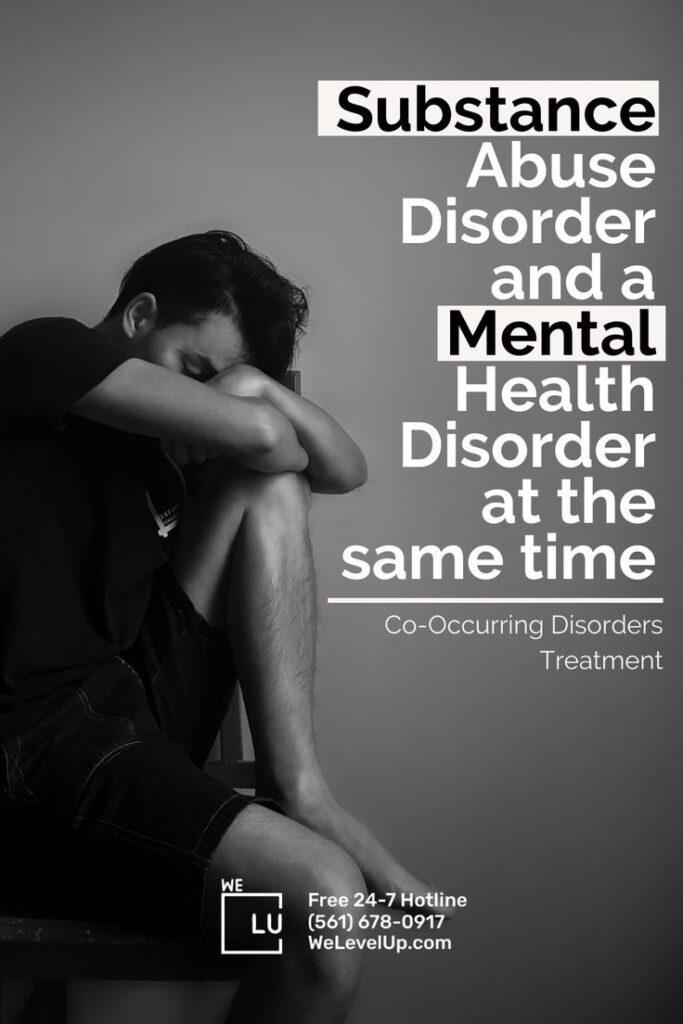What is Alcohol Poisoning?
After too much alcohol consumption, you know you may get a hangover. But you could be in a life-threatening situation if you don’t know when to quit. When a person’s blood-alcohol level rises, so does the risk of alcohol poisoning.
Your liver usually does an excellent job keeping alcohol toxins from entering your bloodstream. But if you gulp a lot down, your liver may be unable to keep up. Alcohol intoxication can lead to death or brain damage. So if you’re with someone who might have drunk too much, call for emergency medical help as soon as possible.
What are the 5 Signs of Alcohol Poisoning?
What are the signs of alcohol poisoning? The side effects of alcohol poisoning occur when a person consumes a dangerously high amount of alcohol quickly. It is a severe emergency that needs immediate attention. How to know if you have alcohol poisoning? Here are the top five signs of alcohol intoxication:
The affected person may exhibit confusion, disorientation, or difficulty maintaining coherent thoughts. They may also have trouble staying awake or may be unresponsive.
Alcohol poisoning often leads to severe vomiting, which can be persistent and uncontrollable. The person may be unable to control their gag reflex and vomit while unconscious.
Alcohol depresses the central nervous system, including the respiratory system. Breathing may become slow, shallow, or irregular. In severe cases, it may even stop altogether.
As a result of reduced oxygenation, the person’s skin may appear pale or bluish in color. This is a sign of poor circulation and indicates a medical emergency.
Alcohol poisoning can lead to seizures or loss of consciousness. Seizures are caused by abnormal electrical activity in the brain and can be life-threatening.
Other Alcohol Poisoning Symptoms
Which of the following are symptoms of alcohol poisoning? In addition to the top five signs mentioned earlier, here are additional symptoms that may indicate alcohol intoxication:
- Hypothermia: Alcohol can lower body temperature, and individuals with alcohol intoxication may exhibit signs of hypothermia, such as shivering, cold and clammy skin, and decreased body temperature.
- Irregular heartbeat: Alcohol can disrupt the heart’s normal rhythm, leading to an irregular heartbeat or arrhythmia. This can manifest as a racing heart or a slow and irregular pulse.
- Low blood sugar (hypoglycemia): Alcohol can interfere with the body’s capability to regulate blood sugar levels. Common low blood sugar signs and symptoms include confusion, dizziness, weakness, sweating, and seizures.
- Unresponsiveness: A person with alcohol intoxication may become unresponsive or unconscious. They may not respond to attempts to wake them up or to painful stimuli.
- Slow reflexes and poor coordination: Alcohol impairs motor skills and coordination. Individuals with alcohol intoxication may have difficulty walking, maintaining balance, or performing simple tasks.
- The pungent odor of alcohol: A noticeable smell of alcohol drink on the breath or in the person’s vicinity, mainly if they have consumed a large amount of alcohol, can indicate alcohol intoxication.
- Severe dehydration: Excessive alcohol consumption can lead to dehydration due to diuretic effects. Signs of severe dehydration include extreme thirst, dry mouth, decreased urination, and dark-colored urine.
- Confusion and agitation: Alcohol intoxication can cause confusion, disorientation, and fever. The person may not understand their surroundings or exhibit erratic and aggressive behavior.
Alcohol intoxication is a medical emergency; seeking immediate medical support is crucial if you suspect someone may be experiencing it. Don’t hesitate to call emergency help or take the individual to the nearest hospital emergency room. Prompt medical intervention is life-saving in cases of alcohol intoxication.
Alcohol Poisoning Symptoms vs Drunk
Alcohol poisoning symptoms are different from simply being drunk. While both involve the consumption of alcohol, alcohol intoxication is a severe and potentially life-threatening condition that occurs when an individual has ingested a dangerous amount of alcohol. While being drunk can impair a person’s abilities and judgment, alcohol poisoning is a much more severe condition that requires immediate medical attention.
Alcohol Poisoning vs Hangover
Alcohol intoxication and a hangover are two distinct conditions related to alcohol consumption. Alcohol intoxication is characterized by confusion, vomiting, slow breathing, unconsciousness, and seizures. It requires immediate medical attention.
On the other hand, a hangover is defined as a collection of unpleasant signs and symptoms that occur after consuming alcohol, typically the following day. Hangover symptoms can include headache, nausea, fatigue, dehydration, light and sound sensitivity, and difficulty concentrating. While a hangover can be uncomfortable and interfere with daily activities, it is not life-threatening, like alcohol intoxication. Hangovers usually resolve on their own within a day or two, and they can be mitigated by drinking responsibly and staying hydrated while consuming alcohol.
How Long Do Alcohol Poisoning Effects Last?
How long does alcohol poisoning stay? The duration of alcohol poisoning effects is determined by several aspects, including the amount of alcohol consumed, individual tolerance levels, and the promptness of medical intervention. While the acute symptoms of alcohol poisoning can be experienced for a few hours, the overall recovery time can extend beyond that.
| Phases | General Timeline of Alcohol Poisoning |
| Acute Symptoms | The immediate symptoms of alcohol intoxication, such as confusion, vomiting, slow breathing, and unconsciousness, can last several hours. In severe cases, medical intervention and monitoring may be necessary during this time. |
| Hangover Effects | After the acute symptoms subside, individuals may experience lingering effects like a severe hangover. These can include headache, fatigue, nausea, dehydration, and sensitivity to light and sound. Hangover symptoms can persist for up to 24 to 48 hrs. or sometimes longer, depending on the severity of alcohol intoxication. |
| Recovery and Residual Effects | Following the acute phase and hangover symptoms, it may take several days or weeks for the body and mind to recover from alcohol intoxication fully. The extent of recovery can vary among individuals, especially if there are complications or organ damage due to alcohol intoxication. |
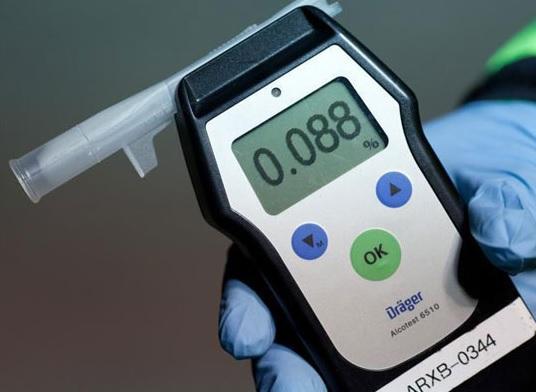
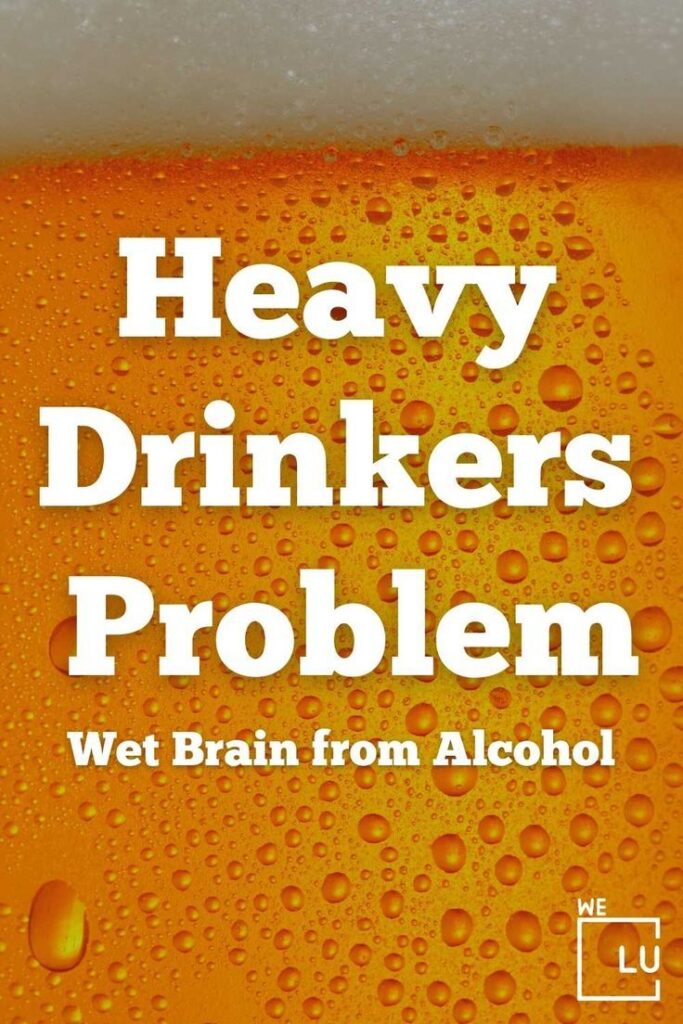
Skip To:
Learn More:
- Calculator for Blood Alcohol Concentration (BAC). Find out What Your BAC Is. BAC Levels For Men & Women. How Should BAC Be Managed? Drunkenness Calculator.
- How to Flush Alcohol Out of Your System?
- Addiction Counseling Near Me, Drug & Alcohol Therapies
- How To Sober Up? Are There Fast Ways To Sober Up From Alcohol?
- How Long Does It Take For Alcohol To Kick In?
- How Long Does Alcohol Stay In Your Blood?
- Alcohol Detox Timeline & How To Safely Manage Alcohol Withdrawal Symptoms Treatment
- Inpatient Alcohol Rehab, Find The Right Treatment For You
- Alcohol Use in Families, 5 Harmful Effects of Alcohol
- Alcohol Use Disorder Symptoms
Emergency Treatment for Alcohol Poisoning
What to do for alcohol poisoning? And how to treat alcohol poisoning at home? No, it would help if you didn’t treat it at home. Alcohol intoxication is a medical emergency that requires professional medical attention.
Do not attempt alcohol poisoning treatment at home or rely solely on home remedies for alcohol poisoning. Immediate medical intervention is crucial to ensure the person’s safety and well-being.
If you think someone you’re with has alcohol intoxication, take these steps:
- Call for emergency medical assistance: Dial emergency services to request immediate medical help.
- Stay with the person: Do not leave the individual alone, especially if they are unconscious or unresponsive. Monitor their breathing and other vital signs while waiting for medical help.
- Keep the person safe: If the individual is conscious and able to sit up, help them sit upright. If they are unconscious and lying down, turn them onto their side in the recovery position. This position helps prevent choking in case of vomiting and allows for the drainage of fluids.
- Information to medical professionals: When medical help arrives, be prepared to provide essential details such as the person’s age, weight, and the approximate amount and type of alcohol consumed. This information can assist healthcare providers in determining the appropriate course of action.
- Don’t do the following things. They may do more harm than good:
- Giving the person a cold shower, which can lower their body temperature.
- Giving them food, which can cause vomiting or choking.
- Trying to have them “walk it off” could lead to a fall.
- Trying to make them throw up, as this can cause choking.
BAC Alcohol Poisoning Level
The blood alcohol content (BAC) measures the alcohol in a person’s bloodstream. BAC is typically expressed as a percentage and used to determine the level of impairment caused by alcohol consumption. The effects of alcohol intoxication and poisoning on a person can vary based on different aspects, such as weight, metabolism, and tolerance. What BAC is alcohol poisoning? Here is a general guide to BAC levels and their corresponding effects and the BAC for alcohol poisoning:
| BAC Level | Effects of Alcohol Consumption & The Alcohol Poisoning BAC |
| 0.02% – 0.03% BAC. | This level of BAC may result from consuming one standard drink. It typically leads to a mild sense of relaxation and a slight decrease in inhibitions. |
| 0.04% – 0.06% BAC. | At this level, individuals may experience increased sociability, lowered inhibitions, and a feeling of euphoria. It can also affect judgment and coordination. |
| 0.07% – 0.09% BAC. | This BAC range is associated with impaired judgment, reduced reaction time, and decreased motor control. Driving in many jurisdictions at or above 0.08% BAC is illegal. |
| 0.10% – 0.12% BAC. | Significant impairment is evident at this level, including decreased balance, slurred speech, and difficulty concentrating. Driving is hazardous and illegal at this BAC level. |
| 0.13% – 0.15% BAC. | Individuals may exhibit significant motor impairment, decreased coordination, and potential emotional instability. Decision-making abilities are further impaired. |
| 0.16% – 0.19% BAC. | This level of intoxication often results in severe impairment of motor skills, loss of balance, and pronounced mental confusion. |
| 0.20% – 0.25% BAC. | Individuals may experience substantial confusion, dizziness, and a high risk of blackouts. Physical control is significantly compromised. |
| 0.26% – 0.30% BAC. | At this BAC level, individuals are at severe risk of alcohol intoxication, loss of consciousness, and memory impairment. Coma or death may occur. |
| 0.31% – 0.40% BAC. | Life-threatening levels of intoxication are reached, which can lead to respiratory depression, coma, and death due to alcohol intoxication. |
Get Help. Get Better. Get Your Life Back.
Searching for Accredited Drug and Alcohol Rehab Centers Near You?
Even if you have failed previously and relapsed, or are in the middle of a difficult crisis, we stand ready to support you. Our trusted behavioral health specialists will not give up on you. When you feel ready or just want someone to speak to about therapy alternatives to change your life call us. Even if we cannot assist you, we will lead you to wherever you can get support. There is no obligation. Call our hotline today.
(844) 597-1011Causes of Death by Alcohol Poisoning
Is alcohol poisonous? Yes. Alcohol is poison in heavy consumption. What does alcohol poisoning feel like? Alcohol intoxication can lead to complications that may result in alcohol poisoning death if not promptly addressed. Some potential death alcohol poisoning can cause include the following:
- Respiratory depression: Alcohol is a depressant that can slow down the (CNS) central nervous system, including the respiratory system. In severe cases of alcohol intoxication, the individual may experience slowed or irregular breathing, which can lead to oxygen deprivation and, ultimately, respiratory failure.
- Choking on vomit: Alcohol can cause vomiting, and if a person is unconscious or incapacitated due to alcohol intoxication, they may be at risk of choking on their vomit. This can obstruct the airway and result in asphyxiation.
- Aspiration pneumonia: Sometimes, when someone vomits while unconscious or semi-conscious, the vomit may be inhaled into the lungs, leading to aspiration pneumonia. This condition occurs when the inhaled material causes lung infection, which can be severe and life-threatening.
- Cardiac arrhythmias: Alcohol intoxication can disrupt the heart’s electrical activity, leading to irregular heart rhythms or arrhythmias. Severe arrhythmias can cause cardiac arrest, where the heart stops functioning effectively.
- Brain damage: In extreme cases, alcohol intoxication can cause significant or severe brain damage, leading to swelling, bleeding, or other complications. Severe brain damage can result in coma or irreversible neurological deficits.
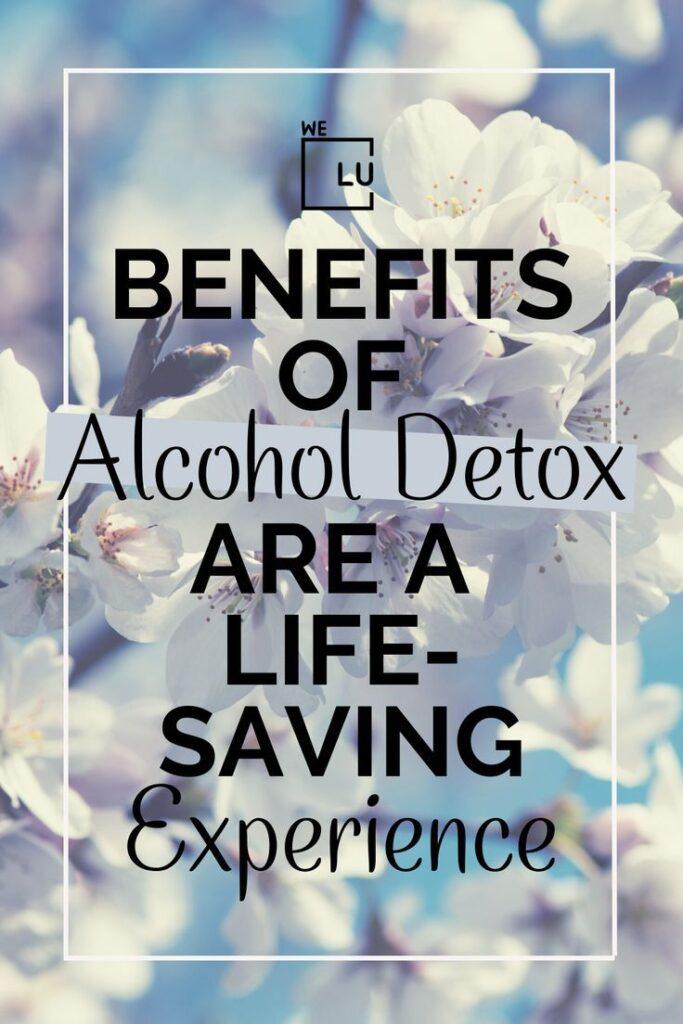
It is crucial to recognize the symptoms alcohol poisoning show and seek immediate medical assistance to prevent these potential complications and reduce fatality risk. Alcohol intoxication is a medical emergency, and timely intervention is essential for the individual’s safety and well-being.
Causes of Alcohol Poisoning Suicide
It is not rare to hear news about someone who mixed drugs and alcohol and died by suicide. Alcohol and mental health disorders can have a complex and interconnected relationship. Excessive alcohol consumption can worsen existing mental health illnesses and contribute to the development of new ones. It can exacerbate symptoms such as depression, anxiety, and mood swings.
Moreover, alcohol can impair judgment, hinder effective coping mechanisms, and interfere with prescribed medications for mental health disorders. It is essential for individuals with mental health disorders to be cautious about alcohol consumption and to seek professional guidance for managing their condition regarding alcohol use.
Alcohol poisoning is a medical emergency caused by consuming excessive amounts of alcohol. However, discussing suicide is another severe matter that requires immediate attention and professional help.
If you or someone you’re concerned with is attempting or has attempted an act of suicide alcohol poisoning, reaching out to a mental health professional is crucial. They are trained to provide the support and assistance needed in such situations. Help is available; you don’t have to face these challenges alone.
Alcohol Poisoning Definition & Fact Sheet
Alcohol poisoning is a severe and potentially life-threatening condition characterized by a toxic buildup of alcohol in the bloodstream, leading to signs and symptoms such as confusion, vomiting, slowed or irregular breathing, unconsciousness, and even coma or death.
Can You Die From Alcohol Poisoning The Day After?
Alcohol poisoning symptoms next day can be more severe. While it is rare, complications related to alcohol poisoning can result in death even after the initial incident.
The symptoms of alcohol poisoning next day can have long-lasting effects on the body, and if not properly treated or if there are underlying health issues, the risk of severe complications and fatalities can persist.
For example, aspiration pneumonia, brain damage, organ failure, or cardiac arrhythmias resulting from alcohol poisoning can have delayed consequences that may lead to death in the following days or weeks. It is crucial to seek emergency medical aid for alcohol intoxication to minimize the risk of severe complications and ensure proper care and monitoring. Do not wait for alcohol poisoning the next day.
Other symptoms that many are concerned about may also include the following:
- 3 day hangover alcohol poisoning.
- A “3-day hangover” typically refers to experiencing lingering symptoms of a hangover for an extended period. However, a hangover itself is not the same as alcohol intoxication. Alcohol intoxication is a severe and potentially life-threatening condition caused by consuming a dangerous amount of alcohol in a short period.
- 4 day hangover alcohol poisoning.
- It’s crucial to clarify that a hangover and alcohol intoxication is different. A hangover is the collection of symptoms experienced after consuming alcohol, typically the morning after drinking. These symptoms can include headache, fatigue, nausea, dehydration, light and sound sensitivity, and difficulty concentrating. Hangover symptoms usually resolve within 24 to 48 hours, though the duration and severity can vary from person to person.
- If you are experiencing symptoms that extend beyond a typical hangover or are concerned about your health, it is necessary to consult a healthcare professional for proper evaluation and guidance. They can assess your specific case and provide appropriate advice and care.
How To Tell If You Have Alcohol Poisoning?
What are symptoms of alcohol poisoning? First, there are two kinds of symptoms. Severe and mild symptoms.
Mild alcohol poisoning symptoms include the following:
- Smelling like alcohol.
- Confusion or slurred speech.
- Poor coordination or stumbling.
- Damp or clammy skin.
- Alcohol poisoning rash.
In severe cases, the following complications can occur:
- Choking on your vomit.
- Trouble breathing because of vomit in your lungs.
- Severe dehydration.
- Hypothermia.
- Brain damage.
- Seizures.
- Coma.
- Heart attack.
- Death.

Alcohol Use Facts & Resources Fact Sheet
Download the below pdf for alcohol use facts and resources. This file by the Substance Abuse and Mental Health Services Administration (SAMHSA) has been publicly available to help alcohol treatment programs and raise awareness.

Get Your Life Back
Find Hope & Recovery. Get Safe Comfortable Detox, Addiction Rehab & Dual Diagnosis High-Quality Care.
Hotline(844) 597-1011Alcohol Poisoning Statistics
The prevalence and incidence of alcohol intoxication may vary across countries and regions due to cultural, societal, and individual factors and variations in alcohol consumption patterns and regulations.
6
Alcohol intoxication accounts for an average of six deaths per day in the US.
Source: CDC
20s
Alcohol intoxication affects individuals of various ages and genders. However, statistics show that men have a higher risk of alcohol intoxication than women. Young adults, primarily those in their 20s, are likelier to experience alcohol intoxication.
Source: NCBI
2 Hrs.
Binge drinking is one of the main risk factors for alcohol intoxication. The CDC defines binge drinking as consuming a massive amount of alcohol in a short time, typically within two hours. Binge drinking puts individuals at a higher risk of alcohol intoxication.
Source: CDC
Alcohol Poisoning Risk Factors
How do you get alcohol poisoning? Several risk factors can heighten the likelihood of experiencing alcohol intoxication or poisoning. These risk factors include the following:
- Binge drinking: Consumption of a large quantity of alcohol in a short period significantly increases the risk of alcohol intoxication. Binge drinking is typically defined as consuming 4 or more drinks within 2 hrs. for women or five or more drinks within two hours for men.
- High alcohol tolerance: Individuals with a high tolerance for alcohol may be more inclined to consume larger quantities of alcohol, increasing the risk of alcohol intoxication. Regular heavy drinkers may develop a higher tolerance, making it more challenging to recognize dangerous levels of alcohol consumption.
- Age: Young adults, particularly those in their late teens and early twenties, have a higher risk of alcohol intoxication. Inexperience with alcohol and a tendency to engage in risky drinking contribute to this heightened risk.
- Mixing substances: What causes alcohol poisoning? Combining alcohol with other substances, such as prescription medications, illicit drugs, or certain over-the-counter drugs, can amplify the effects and heighten the risk of alcohol intoxication. Certain substances can interact with alcohol, leading to dangerous reactions and amplifying the toxic effects on the body.
- Lack of awareness: Individuals unaware of the signs and symptoms of alcohol intoxication may be less likely to seek help or recognize the severity of the situation. A lack of knowledge about safe drinking limits and the risks associated with excessive alcohol consumption can contribute to a higher risk of alcohol intoxication.
- Alcohol use disorder: A diagnosed or undiagnosed alcohol use disorder (AUD) increases the risk of alcohol intoxication. Individuals with AUD may have difficulty controlling their alcohol consumption and are more prone to consuming excessive alcohol.
First-class Facilities & Amenities
World-class High-Quality Addiction & Mental Health Rehabilitation Treatment
Rehab Centers TourRenowned Addiction Centers. Serene Private Facilities. Inpatient rehab programs vary.
Addiction Helpline(844) 597-1011Proven recovery success experience, backed by a Team w/ History of:
15+
Years of Unified Experience
100s
5-Star Reviews Across Our Centers
10K
Recovery Success Stories Across Our Network
- Low Patient to Therapist Ratio
- Onsite Medical Detox Center
- Comprehensive Dual-Diagnosis Treatment
- Complimentary Family & Alumni Programs
- Coaching, Recovery & Personal Development Events
Alcohol Poisoning Prevention
Preventing alcohol intoxication involves responsible alcohol consumption and taking steps to ensure the safety of oneself and others. Here are some prevention strategies:
- Drink in moderation: Be aware of the recommended guidelines for moderate alcohol consumption. For most adults, this means up to 1 drink per day for females and 2 for males. Avoid binge drinking or consuming large quantities of alcohol in a short period.
- Know your limits: Understand your tolerance for alcohol and know when to stop drinking. Pace yourself and avoid trying to keep up with others. Remember that alcohol affects individuals differently, and what may be safe for one person may be dangerous for another.
- Stay hydrated: Drink water or non-alcoholic beverages in between alcoholic drinks to stay hydrated. This can help reduce the impact of alcohol on your body and prevent dehydration, which can worsen the effects of alcohol.
- Avoid mixing substances: Avoid combining alcohol with other substances, including prescription medications, illicit drugs, or over-the-counter medications. Mixing substances can increase the risk of adverse reactions and potentiate the effects of alcohol.
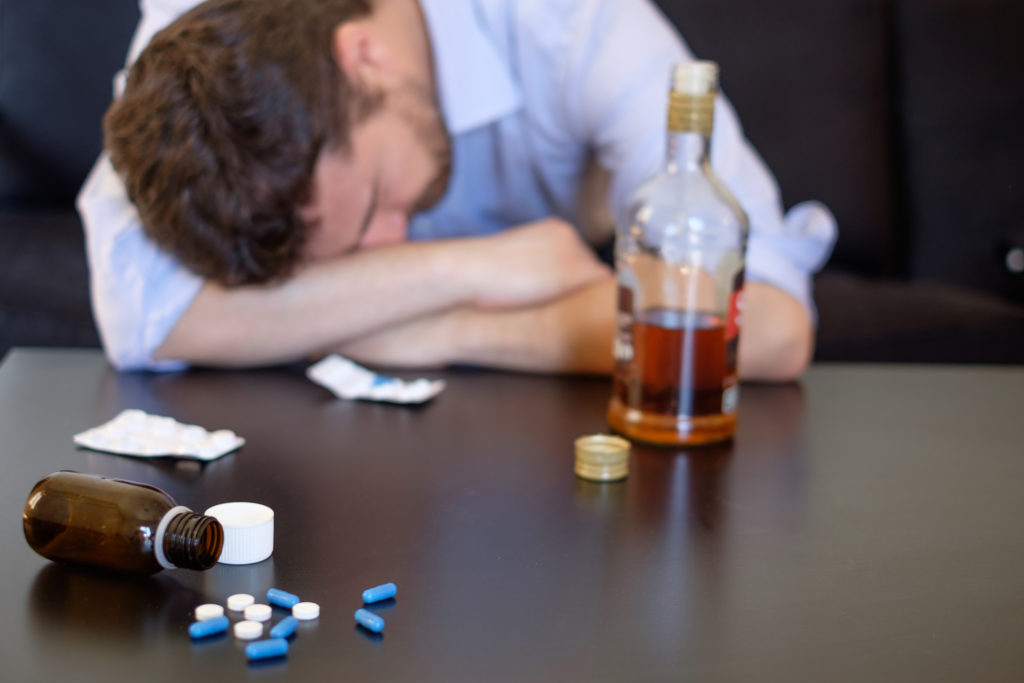
- Look out for others: In a social setting, be aware of others’ alcohol consumption and behavior. If someone appears to be experiencing signs of alcohol poisoning, such as confusion, vomiting, or unconsciousness, seek immediate medical help.
- Plan: If you know you will be drinking, arrange a safe way to get home. Designate a sober driver, use public transportation, or place for a ride-sharing service. Avoid driving under the influence of alcohol.
- Educate yourself: Learn about the signs and symptoms of alcohol poisoning. Understanding the dangers and risks of excessive alcohol consumption can help you recognize potential emergencies and take appropriate action.
Alcohol Poisoning Recovery
How do you know if you get alcohol poisoning signs? Your doctor can diagnose alcohol intoxication based on your symptoms. They’ll also order blood and urine tests to check your alcohol levels. What are signs of alcohol poisoning? During recovery from alcohol intoxication, the individual may experience:
- Headache.
- Stomach cramps.
- Nausea.
- Anxiety.
- Tremors.
It is essential to keep hydrated and avoid drinking any alcohol. If you’ve drunk dangerous amounts of alcohol, doctors may “pump” your stomach. This keeps any leftover alcohol from getting into your bloodstream.
At the hospital, they may also:
- Give you fluids through an IV.
- Give you the extra oxygen to help you breathe.
- Flush your stomach of toxins.
- Remove toxins from your blood.
Recovering from alcohol intoxication involves allowing your body time to heal and regain its normal functioning. Here are some aspects of alcohol intoxication recovery:
- Medical treatment: Alcohol poisoning is a medical emergency, and immediate medical attention is crucial. In a medical setting, healthcare professionals can provide the necessary care, such as monitoring vital signs, administering fluids, and ensuring proper oxygenation.
- Rest and hydration: Resting and staying hydrated are vital components of recovery. Alcohol can cause dehydration, so drinking water or electrolyte-rich fluids can help replenish lost fluids and alleviate symptoms. Adequate rest allows your body to recover and regain strength.
- Nutritious diet: A healthy, well-balanced, nutritious diet can support recovery. Concentrate on foods rich in vitamins, minerals, and antioxidants to help recover any damage caused by alcohol poisoning.
- Avoid alcohol and substance use: It is crucial to abstain from alcohol and other substances during recovery. Continuing to drink alcohol can exacerbate the health risks and hinder the body’s healing process.
- Follow medical advice: It is essential to follow any instructions or recommendations healthcare professionals provide. They may prescribe medications or suggest follow-up appointments to monitor your progress in recovery and address any underlying issues.
- Seek support: Consider seeking help from friends, family, or support groups. Talking about your experience and connecting with others who may have gone through similar situations can provide emotional support and valuable insights.
- Address underlying issues: If alcohol poisoning occurs due to problematic drinking patterns or an alcohol use disorder, it may be essential to seek professional help or counseling to address and manage these issues. Substance abuse treatment programs, therapy, or support groups can provide guidance and support in making positive changes.
After Alcohol Poisoning
When treating alcohol intoxication, the work does not end when the physical symptoms have been treated and diminished. Many individuals who experience this condition could also benefit from counseling or therapy, whether or not they are not diagnosed with an alcohol use disorder.
Understanding why they ended up in such a difficult situation and how to prevent it from happening again may prevent an alcohol addiction from developing.
Was it social pressure, a desire to cause harm to yourself, or another psychological factor at play? If there is already an established alcohol use disorder, then an alcohol rehab program is certainly necessary to prevent immediate and long-term consequences from continuing to drink.
If you or someone you’re concerned with is dealing with substance use disorder to alcohol or other drugs, especially if you have undergone multiple relapses, look no further.
With a top success rate for long-term recovery, the We Level Up alcohol treatment centers offer one of the most comprehensive addiction treatment recovery programs available in the US, bringing hope to families daily.
World-class, Accredited, 5-Star Reviewed, Effective Addiction & Mental Health Programs. Complete Behavioral Health Inpatient Rehab, Detox plus Co-occuring Disorders Therapy.
CALL(844) 597-1011End the Addiction Pain. End the Emotional Rollercoaster. Get Your Life Back. Start Drug, Alcohol & Dual Diagnosis Mental Health Treatment Now. Get Free No-obligation Guidance by Substance Abuse Specialists Who Understand Addiction & Mental Health Recovery & Know How to Help.
Top 10 How Do You Know If You Have Alcohol Poisoning? FAQs
-
Is alcohol a poison?
Alcohol is not considered a poison in small amounts or when consumed responsibly. However, excessive or heavy consumption of alcohol can have toxic effects on the body, leading to alcohol intoxication.
-
How to cure alcohol poisoning?
Alcohol poisoning cure requires immediate medical intervention and cannot be treated at home. If you suspect someone has alcohol intoxication, it is crucial to call emergency support right away. In a medical setting, healthcare professionals will provide necessary treatment, such as monitoring vital signs, administering intravenous fluids to prevent dehydration, ensuring proper oxygenation, and managing any possible complications. The individual may be observed and monitored until their condition stabilizes. Self-treatment or home remedies are not effective or safe for alcohol intoxication and should never be attempted.
-
Is throwing up after drinking alcohol poisoning?
Throwing up or vomiting can be a symptom of alcohol intoxication. When the body is overwhelmed by alcohol, it may try to rid itself of the toxic substance through vomiting. Vomiting can be a natural protective mechanism to expel alcohol from the body.
-
How long can alcohol poisoning last?
The duration of alcohol intoxication depends on the severity of the case and the individual’s response to treatment. The acute symptoms of alcohol poisoning, such as confusion, vomiting, and loss of consciousness, may last several hrs. However, the impacts of alcohol on the body can persist beyond the initial episode. It may take days for the body to recover fully, especially if there are complications or the person has consumed a significant amount of alcohol.
-
How to get rid of alcohol poisoning?
Immediate medical intervention is necessary. Alcohol intoxication is a severe condition that requires professional treatment. Call emergency services or seek medical help immediately if you suspect someone has alcohol intoxication. In a medical setting, healthcare professionals can provide the necessary care, such as monitoring vital signs, administering fluids, ensuring proper oxygenation, and managing complications. Self-treatment or home remedies are not effective or safe for alcohol intoxication, and medical attention is essential for recovery.
-
Is pooping your pants a sign of alcohol poisoning?
While alcohol intoxication can cause loss of bowel control, including accidentally defecating (pooping) in your pants, it is not a common or specific symptom of alcohol poisoning. The primary signs of alcohol poisoning include confusion, vomiting, slow or irregular breathing, seizures, pale or bluish skin, and unconsciousness. However, excessive alcohol consumption can impair cognitive and motor functions, which may lead to accidents or loss of bodily control.
-
What are the symptoms of alcohol poisoning hangover?
Symptoms of alcohol poisoning and a hangover are different. Alcohol poisoning symptoms include confusion, vomiting, slow breathing, seizures, and unconsciousness. Hangover symptoms, on the other hand, typically include headache, fatigue, nausea, dehydration, sensitivity to light and sound, and difficulty concentrating.
-
How long does alcohol poisoning last 7 days to die?
While severe cases of alcohol poisoning can result in death, the timeline of alcohol poisoning can hugely vary based on the person and the circumstances. Other complications of alcohol intoxication may linger and cause death after the incident.
-
How long does it take to recover from alcohol poisoning?
While the acute symptoms of alcohol poisoning may last several hours, the recovery can take days or even longer. It is essential to prioritize rest and hydration and follow medical advice. Complete recovery may depend on factors such as the amount of alcohol consumed, any complications that may have arisen, and the individual’s overall health. Professional medical help and support are crucial for a safe and complete recovery.
-
What happens to your body when you have alcohol poisoning?
What happens when you get alcohol poisoning? When you have alcohol poisoning, your body is overwhelmed by a toxic amount of alcohol. Alcohol is a (CNS) central nervous system depressant, meaning excessive consumption can lead to various dangerous effects. Alcohol poisoning can cause confusion, vomiting, slowed breathing, lowered body temperature, seizures, and unconsciousness. It can also impact vital functions like heart rate and blood pressure. In severe cases, alcohol poisoning can be life-threatening, leading to death or coma if left untreated. Immediate medical aid prevents further harm and supports the body’s recovery.
Alcohol Poisoning Symptoms, Signs, Cures, Effects & What To Do? Video
Get FREE addiction treatment insurance check – https://welevelup.com/rehab-insurance/
If you or a loved one is struggling with alcohol abuse or other substance use disorder(s), call for a FREE consultation 24/7 at (561) 678-0917
Alcohol Poisoning Symptoms, Signs, Cures, Effects, & What To Do? Video Transcript
Drinking much alcohol quickly can have dangerous and fatal side effects, such as alcohol poisoning. A coma or death may result from too much alcohol too quickly, affecting respiration, heart rate, body temperature, and gag reflex.
Severe alcohol intoxication necessitates immediate medical attention. If you believe someone may have alcohol poisoning, call 911 to obtain immediate emergency medical care.
When to visit a doctor for alcohol poisoning
Not all of the warning signs or symptoms of alcohol poisoning must occur before you seek medical help. It is important to note that patients with alcohol poisoning who are dozing off or who cannot be awakened risk dying.
Alcohol poisoning is an urgent situation
If you have any suspicions, even if you don’t notice the classic symptoms or indicators of alcohol poisoning, you should get immediate medical help. What you need to do for alcohol poisoning is:
Dial your local emergency number or 911 right away. Never rely on someone recovering from alcohol poisoning to sleep.
Be prepared to share details. If you are aware, let medical staff or emergency workers know what kind, how much, and when the patient drank alcohol.
Never leave a person who is unconscious alone. Someone with alcohol poisoning may choke on their own vomit and become unable to breathe because alcohol poisoning alters how the gag reflex functions. Don’t try to make the victim throw up while you wait for assistance; you risk making them choke.
Help someone who is throwing up. Make an effort to keep the person seated. Turn the person’s head to the side if they must lie down; this will help them from choking. To prevent unconsciousness, make an effort to keep the person awake.
Experience Transformative Recovery at We Level Up Treatment Centers.
See our authentic success stories. Get inspired. Get the help you deserve.
Start a New Life
Begin with a free call to an addiction & behavioral health treatment advisor. Learn more about our dual-diagnosis programs. The We Level Up Treatment Center Network delivers recovery programs that vary by each treatment facility. Call to learn more.
- Personalized Care
- Caring Accountable Staff
- World-class Amenities
- Licensed & Accredited
- Renowned w/ 100s 5-Star Reviews
We’ll Call You
Search We Level Up Alcohol Poisoning Detox, Mental Health Topics & Resources
Sources
[1] Newman RK, Stobart Gallagher MA, Gomez AE. Alcohol Withdrawal. [Updated 2022 Aug 29]. In: StatPearls [Internet]. Treasure Island (FL): StatPearls Publishing; 2023 Jan-. Available from: https://www.ncbi.nlm.nih.gov/books/NBK441882/
[2] Alcohol Facts and Statistics – National Institute on Alcohol Abuse and Alcoholism (NIAAA)
[3] Nehring SM, Freeman AM. Alcohol Use Disorder. [Updated 2022 Jul 31]. In: StatPearls [Internet]. Treasure Island (FL): StatPearls Publishing; 2023 Jan-. Available from: https://www.ncbi.nlm.nih.gov/books/NBK436003/
[4] Alozai Uu, Sharma S. Drug and Alcohol Use. [Updated 2022 Jun 21]. In: StatPearls [Internet]. Treasure Island (FL): StatPearls Publishing; 2023 Jan-. Available from: https://www.ncbi.nlm.nih.gov/books/NBK513263/
[5] Alcohol use disorder – Available from: https://medlineplus.gov/download/genetics/condition/alcohol-use-disorder.pdf
[6] Huebner RB, Kantor LW. Advances in alcoholism treatment. Alcohol Res Health. 2011;33(4):295-9. PMID: 23580014; PMCID: PMC3860532.
[7] Center for Substance Abuse Treatment. A Guide to Substance Abuse Services for Primary Care Clinicians. Rockville (MD): Substance Abuse and Mental Health Services Administration (US); 1997. (Treatment Improvement Protocol (TIP) Series, No. 24.) Chapter 5—Specialized Substance Abuse Treatment Programs. Available from: https://www.ncbi.nlm.nih.gov/books/NBK64815/
[8] LaHood AJ, Kok SJ. Ethanol Toxicity. [Updated 2023 Mar 13]. In: StatPearls [Internet]. Treasure Island (FL): StatPearls Publishing; 2023 Jan-. Available from: https://www.ncbi.nlm.nih.gov/books/NBK557381/
[9] Alcohol’s Effects on Health – National Institute on Alcohol Abuse and Alcoholism (NIAAA)
[10] Alcohol’s Effect on Health: NIAAA brochures and fact sheets – National Institute on Alcohol Abuse and Alcoholism (NIAAA)
